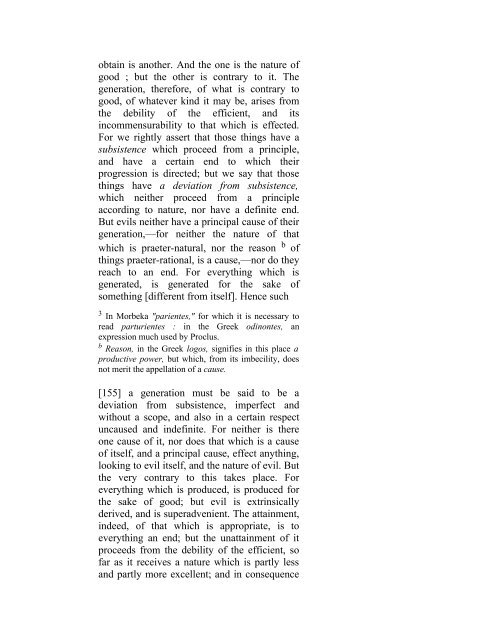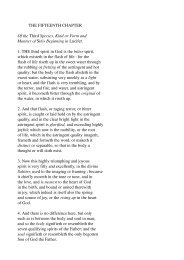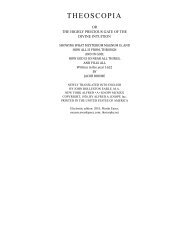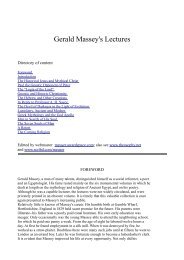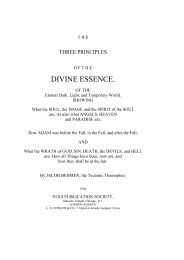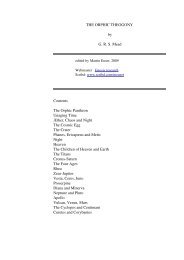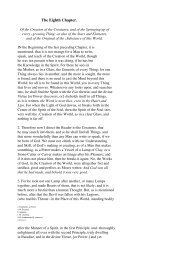PROCLUS, THE PLATONIC SUCCESSOR
PROCLUS, THE PLATONIC SUCCESSOR
PROCLUS, THE PLATONIC SUCCESSOR
Create successful ePaper yourself
Turn your PDF publications into a flip-book with our unique Google optimized e-Paper software.
obtain is another. And the one is the nature of<br />
good ; but the other is contrary to it. The<br />
generation, therefore, of what is contrary to<br />
good, of whatever kind it may be, arises from<br />
the debility of the efficient, and its<br />
incommensurability to that which is effected.<br />
For we rightly assert that those things have a<br />
subsistence which proceed from a principle,<br />
and have a certain end to which their<br />
progression is directed; but we say that those<br />
things have a deviation from subsistence,<br />
which neither proceed from a principle<br />
according to nature, nor have a definite end.<br />
But evils neither have a principal cause of their<br />
generation,—for neither the nature of that<br />
which is praeter-natural, nor the reason b of<br />
things praeter-rational, is a cause,—nor do they<br />
reach to an end. For everything which is<br />
generated, is generated for the sake of<br />
something [different from itself]. Hence such<br />
3 In Morbeka "parientes," for which it is necessary to<br />
read parturientes : in the Greek odinontes, an<br />
expression much used by Proclus.<br />
b Reason, in the Greek logos, signifies in this place a<br />
productive power, but which, from its imbecility, does<br />
not merit the appellation of a cause.<br />
[155] a generation must be said to be a<br />
deviation from subsistence, imperfect and<br />
without a scope, and also in a certain respect<br />
uncaused and indefinite. For neither is there<br />
one cause of it, nor does that which is a cause<br />
of itself, and a principal cause, effect anything,<br />
looking to evil itself, and the nature of evil. But<br />
the very contrary to this takes place. For<br />
everything which is produced, is produced for<br />
the sake of good; but evil is extrinsically<br />
derived, and is superadvenient. The attainment,<br />
indeed, of that which is appropriate, is to<br />
everything an end; but the unattainment of it<br />
proceeds from the debility of the efficient, so<br />
far as it receives a nature which is partly less<br />
and partly more excellent; and in consequence


